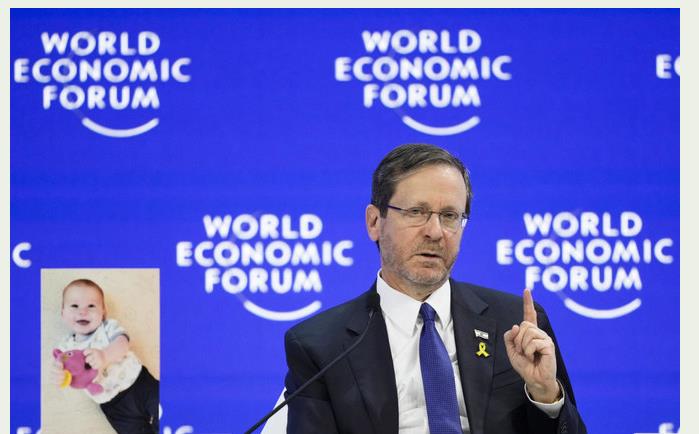
Political stability has been a rare commodity in Iraq since the 2003 invasion. Though governments have come and gone, the lot of normal Iraqis has only worsened. Public services are in tatters, the economy is as broken as the country’s politics and the proliferation of militias has made security impossible. Iran, long contained by a strong Iraq, filled this vacuum, exacerbating the country’s weaknesses and drawing it away from the Arab world. With the Iranian regime on the back foot at home, many now wonder what the implications will be in Baghdad.
Amid a failing state and violent clashes across the country, new Prime Minister Mohammed Al-Sudani was appointed last month following months of infighting that paralyzed the government of his predecessor, Mustafa Al-Kadhimi. Al-Sudani’s appointment comes amid a wider conflict between pro and anti-Iranian factions, which has left members of the Council of Representatives of Iraq unable to form a stable coalition government or elect a new president.
With the coalition led by former Prime Minister Nouri Al-Malki and his Dawa Party seeking to grow its national representation and Muqtada Al-Sadr first insisting he form a majority government, only to then use his militia to scupper the parliamentary process, the country and its political life have been caught between a rock and a hard place.
Iraq’s democracy hangs by a fine thread, with the country’s institutions, security services, judiciary and the media all failing to provide for citizens. The political stalemate of the last year began after protests called for the overhaul of the political system. Chief among the complaints of protesters has been the interference of Iran, which has consistently sought to undermine Iraq’s fragile democracy. It is therefore unsurprising that, despite several invitations, the movement of firebrand cleric Al-Sadr, Al-Sudani’s rival in Iraq’s majority Shiite camp, refused to join the government.
The dysfunction among the Shiite factions in Iraq is representative of a wider problem, which is Iran’s tireless commitment to shaping Iraqi politics. According to London-based think tank the International Institute for Strategic Studies: “Iraq continues to pose a threat to Iranian national security, which is why Iran is intent on shaping Iraq’s domestic politics and strategic orientation.”
Two decades of empowering key militia groups and political parties has given Iran an incredible amount of influence in Iraq and leverage over its politics. Though Iran’s relationship with its Iraqi allies is usually one of mentorship as opposed to direct control, Tehran has a broad network of Iraqi political and militant groups. Today, an increasing number of militia members have graduated into mainstream Iraqi politics. This has allowed Iran to ensure that, though Iraqi political life is chaotic, those who become preeminent are friendly to the regime in Tehran.
The dysfunction among the Shiite factions is representative of a wider problem, which is Iran’s tireless commitment to shaping Iraqi politics
Zaid M. Belbagi
Irrespective of the popular movement opposing it at home, Iran’s government remains focused on its proxies in Iraq simply because it remains its largest security concern. Despite Iran’s policy of deliberate public ambiguity in respect of its operations across its western border, it provides material and political support to hundreds of thousands of militiamen, allowing it to have a military footprint in the country while also being able to capitalize on existing domestic rivalries to retain its influence.
The recent arrival of Al-Hashd Al-Sha’abi and Kata’ib Hezbollah — radical Iraqi Shiite paramilitary groups backed by Iran — at Mashhad airport, effectively propping up regime security on Iranian soil, showed the extent to which these groups are under Iran’s control.
This is an extension of Iran’s already well-documented strategy of placing proxy groups in control of key political sites, especially along Iraq’s national borders and the disputed boundaries of the Kurdistan region. Though these militias, alongside the larger Shiite-dominated Al-Hashd Al-Sha’abi, are a byword for Iranian influence in the country, Tehran also has a strong connection to the supposedly anti-Iranian Al-Sadr, the leading Sunni actors and the Kurdistan Democratic Party’s Kurdish rival, the Patriotic Union of Kurdistan.
The recent Iranian missile attacks on KDP territory in Iraq are in fact a direct result of Iran’s domestic upheaval. As Tehran simultaneously seeks to limit the territory being used by dissident groups and to pressure Iraqi politicians to do its bidding, the recent bombings show domestic pressures are not limiting Iran’s interference in Iraq, but rather increasing it.
Though the schism between Iraq’s Shiite factions is dominated by concerns over power and political ambition, it is also indicative of a wider fatigue with Iranian influence in Iraq. Iranian interference in Iraq is increasingly seen as only reinforcing the situation of a weak state riddled with corruption that is unable to ensure adequate public services provision. Although it may be that Tehran’s distraction over affairs in Iraq weakens a regime that should be focusing on matters at home, it is unlikely Iran will relinquish its control in Iraq willingly.
Political infighting in Iraq can only end with Tehran’s exit and, for that to happen, Iraq’s institutions must be rebuilt and the involvement of foreign actors, including Turkey, the US and the Gulf states, must be kept to a minimum. Only strong Iraqi institutions can recalibrate the country’s politics; weak ones will continue to host menacing foreign actors and the failed state that comes with them.
• Zaid M. Belbagi is a political commentator and an adviser to private clients between London and the GCC. Twitter: @Moulay_Zaid












